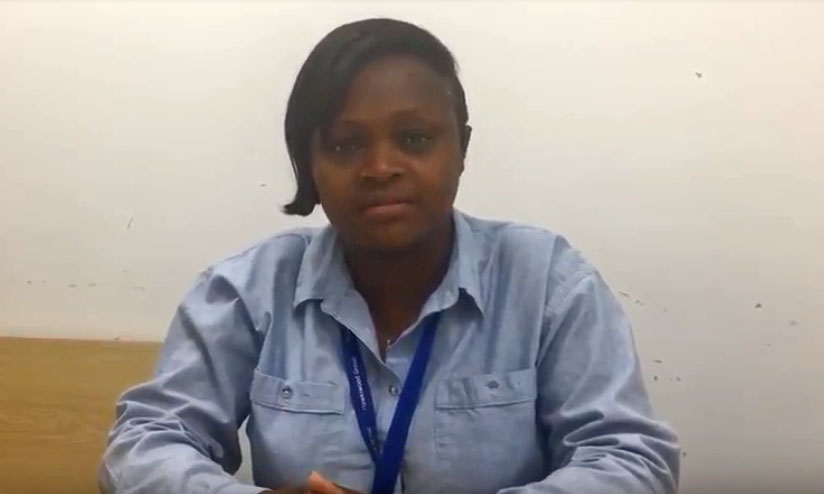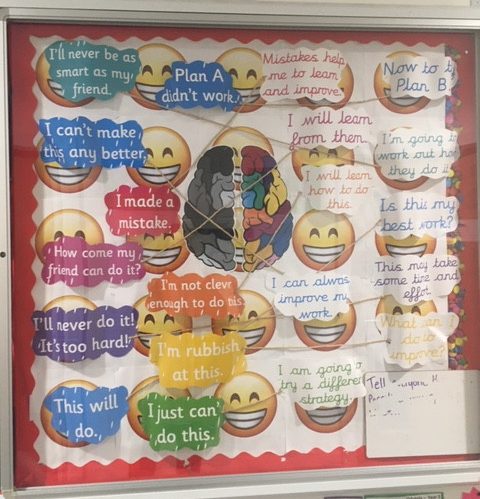“I AM selling drugs for a gang, I've been involved in two stabbings and my friend got shot then died on my chest,” writes Patrick.
But he’s not a violent gang member recounting his crimes – he’s a young boy who’s been asked to imagine what could happen to him in a decade’s time.
Patrick - whose name has been changed to protect his identity - is one of the 1,500 primary school children at pupil referral units (PRUs) in England, set up to educate kids who’ve been kicked out of mainstream school.
The Sun has lifted the lid on the scandal of Britain’s rising number of ‘Unteachable’ kids - with permanent exclusions soaring by 56 per cent in just three years and up to 49,000 other children illegally "off-rolled" every year.
Many end up in PRUs, and now we’ve been given rare access to one.
In fact, of the dozens we asked to visit, Hawkswood Primary PRU in north-east London was the only one to allow us access. Patrick is one of up to 40 kids who attends the school.
Although these are some of the most disruptive children in the school system – screaming, biting, headbutting and spitting are all commonplace – not a single one is abandoned by Hawkswood. Headteacher Marie Gentles refuses to exclude kids, no matter what they do.
Her pupils are given hugs, never called "naughty", and a red and yellow 'traffic light' system teaches them about unacceptable behaviour.
"They know how to make us feel happy"
None of these techniques are ground-breaking, but they work - every Year Six student sat the recent SATs tests
Patrick was sent to Hawkswood last year and agrees the tactic works.
"They know how to make us feel happy,” he says.
"[My old school] didn’t really know how to handle me. I’d always run out of lesson... I used to throw chairs but if I do that now they just keep me safe."
Inspirational Marie estimates a quarter of the students risk being drawn into gangs – not surprising, as gang members are five-and-a-half times more likely to have been excluded from school than other kids.
"We’ve had a couple of children who have definitely been embroiled in a gang," she says.
Boys more likely to be excluded than girls
"However, we have more children who are vulnerable to being groomed by a gang, that’s the big thing."
The pupils are also almost all boys.
"We always have minimal girls," she adds. "At the moment, we have no girls in the juniors at all and one girl in the infants."
This isn't unusual for a PRU - for every girl, three boys are permanently excluded from school.
But it's the rare female pupils who are the hardest work.
Just last year, captured a screaming five-year-old girl spitting in a teacher's face while being restrained by a technique known as "positive handling" at the unit.
This technique is used as a last resort for the safety of the child and others.
Disruptive children who just want a hug
"You're showing them you can keep them emotionally and physically safe," Marie says. "We’ve had children who, after a while, will say, 'Oh Miss, can you hold me like that please?' "We’ll say, 'We don’t have to hold you like that, we can just give you a hug.’"
Marie is adamant no child at her school will feel rejected, which is why she doesn’t exclude kids.
“We had a child here who was new about two months ago and was acting out really violently, really big. He said ‘Are you going to send me home?’" she says.
"I said, 'we’re not sending you home, you might be trying to hurt us but we still like you'. Within two weeks, he wasn’t displaying that behaviour anymore."
Locks on front doors in case students try to bolt
As I walked into the PRU the doors locked behind me - a safety measure in case any children in "fight or flight mode" try to bolt.
But inside all was quiet, and one little boy even ran to get me a chair.
"People are often surprised [by the calmness] but this is our expectation," says Marie.
In one classroom, I found Patrick and his four classmates, all from very different backgrounds, looking at the stories they'd written about themselves the day before.
They'd 'jumped' 10 years into the future and imagined a series of events, including some horrible ones, happening to them (today, they were 'jumping back' and writing what they could have done differently).
Teachers don't shy away from newsworthy issues
Patrick's shocked me - gangs, drug dealing, guns, police chases, funerals - every sentence was riddled with tragedy.
But his teacher, Leah Mwaniki, doesn’t shy away from discussing these issues with students.
Shock school exclusion numbers
2,000 students excluded from school every day on average
40 kids permanently excluded every day
352 pupil referral units (PRUs) in England
78% of permanent exclusions are issued to children with special education needs (SEN)
1% of excluded children get five good GCSEs they need to succeed
74% of children in PRUs are persistently absent
40% of kids are not in education, employment or training when they leave PRUs at 16
71% of children in PRUs are white British
63% of prisoners were suspended or temporarily excluded as kids
85% of children in young offender institutions have been excluded
1,572 primary school children aged between five and 10 who were in PRUs last year
£2.1billion... how much experts say every year group of permanently excluded pupils will additionally cost the state in education, health, benefits and criminal justice costs
“Gangs, knife crime, everything, we have to address," says Leah, who has worked at the unit for eight years after making the move from mainstream schools like Marie.
“We’re not going to hide anything about drugs; we’re going to speak about it because most of them, or some of them, are exposed to it."
PRUs targeted by 'county lines' gangs
PRUs have become key targets for 'county lines' gangs, who groom thousands of vulnerable youngsters to shuttle and sell Class A drugs.
Marie, 39, says students as young as seven can be targeted: "The children are so vulnerable that they don’t even know they’re being groomed.”
Hawkswood teachers are trained to look out for the signs a student is being groomed: suddenly wearing new clothes, talking about money, or mentioning new names.
Teachers go to extreme lengths to protect the kids too – if a parents lets an older student travel to and from school by themselves, a teacher will take them to the bus stop the first few times.
"Safeguarding is absolutely paramount here," Marie says.
Because Hawkswood is a short-term intervention, many students reintegrate back into mainstream education within 15 to 20 weeks, with most doing so successfully.
Words "naughty" and "bad" are banned
Teachers are also careful not to call kids “naughty” or “bad”, instead focusing on why certain behaviours are unacceptable.
As part of this, they have lessons on behaviour modification (as well as the national curriculum), to help them when they reintegrate.
A generation of 'forgotten' children
ROB Halfon, Tory MP and Chair of the Select Committee on Education in the House of Commons, has backed The Sun's series.
He says far too many pupils are being excluded from schools, often on dubious grounds.
"The rush to exclude is one of the greatest social injustices of our times," he says.
"It is our modern age’s equivalent of the Victorian workhouse. If left unchecked, this trend will create generations of forgotten children — and our society will pay a savage price for that cruelty."
Mr Halfon has called on the Government to take "radical action".
A lot is expected of the kids but it seems to work.
Marie is fiercely proud of what the children have achieved, especially as when she arrived at Hawkswood she expected to find kids fighting, swearing and an out-of-control atmosphere.
"Stigma" of PRU children
But while some youngsters do fit the "stigma" of a PRU child - being from a broken home or a disadvantaged area - others don't.
Many have working parents and, while figures show excluded and off-rolled kids are more likely to have special educational needs (SEND), a lot of Hawkswood students don't.
But most of them do need to learn that actions have consequences.
So "wrong choices" incur verbal, 'yellow' and 'red' warnings, or time penalties which have to be 'paid back' during the after-school club at the end of the day.
Like most PRUs, Hawkswood is getting more and more children through its doors. Last year, 1,572 primary school children aged between five and 10 were in PRUs - up from 715 in 2011.
But at the same time, funds are being slashed.
Excluded pupils cost state £2.1 billion in future
"It’s so hard because you’re cutting from the most vulnerable," says Marie.
"I strongly feel that later on it’s costing us more anyway.”
Experts say every year group of permanently excluded pupils ends up costing the state £2.1billion in education, health, benefits and criminal justice costs.
Marie suggests better training for teachers in mainstream schools could cut the amount of exclusions by helping them deal with challenging kids, but it’s not the full answer.
"There are always going to be those individuals with a slightly higher level of need who will need an alternative provision, like a PRU," she says.
Top stories in news
Marie believes no child should be condemned as unteachable – and Patrick showed why, when he reflected on what he wants out of life in his second story.
"When my exclusion is over I am going to prove all the teachers I can do it and going to leave Hawkswood a successful young man,” he wrote.
With many children's futures left in tatters the moment they're excluded from school, I hope for Patrick's sake he defies the odds and does just that.
What can kids be excluded for?
THE decision to permanently exclude a student is a huge one that can impact on their long-term future
According to statutory guidance released by the Department for Education, such action should only be taken:
- In response to a serious breach or persistent breaches of the school's behaviour policy
- Where allowing the pupil to remain in school would seriously harm the education or welfare of the pupil or others in the school
Reasons for exclusion might include bullying, arson, vandalism, drug dealing, alcohol abuse, persistant disruptive behaviour, physical assault or racist abuse,.
Youngsters who repeatedly fail to either follow academic instruction or complete a behavioural sanction, like a detention, may also find themselves kicked out.

















